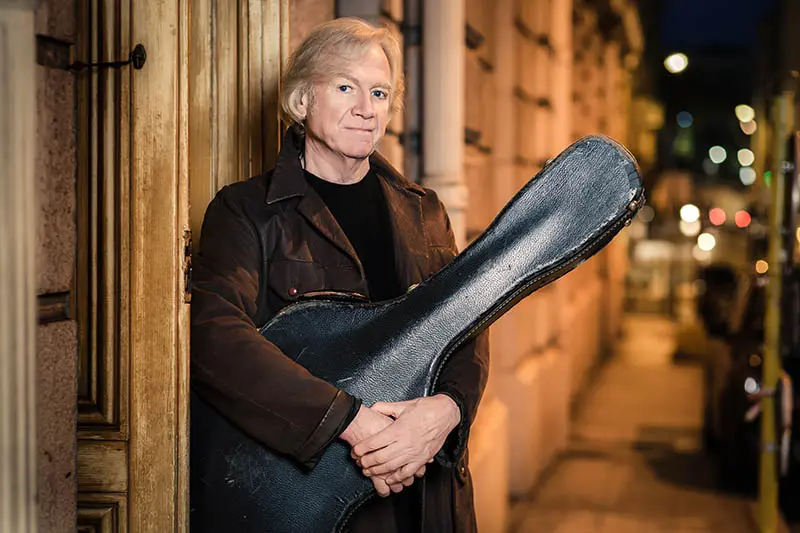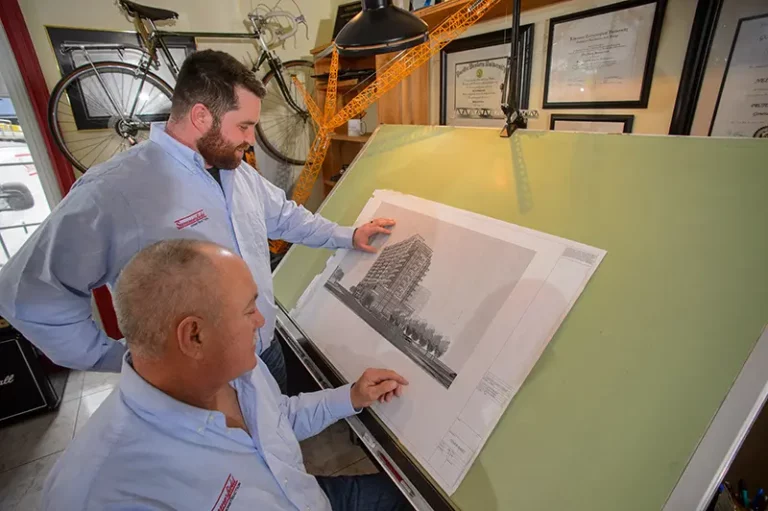Singer Justin Hayward is known the world over as, “the voice of the Moody Blues.”
With a career that spans more than five decades, writing worldwide hits, performing at Bill Graham’s Filmore East in 1968, the Isle of Wight Festival of 1970, the Los Angeles Forum, 1974, the Royal Albert Hall, 2000—and thousands of other memorable appearances—Justin is once again on tour.
Asked what motivates him to go on the road and perform—being long past the point of needing to tour to pay the rent—Justin says: “I do need to… just for my own peace of mind. What the audience brings to these songs is something quite remarkable. We can do them perfectly in a sound check, and that’s lovely, but when the audience comes into the room, something happens—there is a magic that they bring to these songs through their own experience. I never want to give that up. And, you know, I never had a proper job.”
Regarding the surprises Justin’s show has for long-time Moody Blues fans: “Probably what I leave out,” he says with a laugh. “No, there are a few things I couldn’t go off stage without playing, but I think the fact that [the audience] may be surprised I include the other players on stage. It’s not just about me, it’s about them, the way they love this music, too.”
He continues: “I am privileged to be with three other great musicians. Julie Ragins who was with the Moodys. She has the voice of an angel and knows all my double-tracked parts that I did on the records, all of the important parts from the Moodys’ stuff. And then Mike Dawes who is worth the price of admission just to see him play. Young, brilliant guitar player, I’ve never seen anything like that. And Karmen Gould, the flute player from heaven, really,” Justin chuckles. “Those people have their places. In the end, it’s about the songs and how they stand and the feeling they create in the room.”
How did Justin decide his tour would pass through cities in Ontario—including Windsor—and American cities, such as Waterloo, New York and Easton, Pennsylvania.
“I am offered a lot of stuff, and sometimes I just say yes,” Justin says. “I was surprised because I didn’t think the Moodys had that much success in that part of Canada, and I’m probably letting myself in for a fall, right now, by doing it. But I thought: ‘I’m going to give it a go.’ I spoke to Mike Dawes about it, and he was like: ‘Yeah, let’s do it! Let’s take a chance!’”
With such an illustrious career, does Justin ever sit back and marvel at it all?
“No…” he says, drawing the word out, thinking. “No…”
Justin speaks of the experience of remastering classic Moody Blues albums: “A few years ago we remastered a lot of the Moodys’ work, including the four-track of Days of Future Past, and I found myself thinking: ‘How did we do that?’ We did it because we didn’t really think about it, just steamed straight into it. I wouldn’t say it’s regret, but that also brings up: ‘Oh, if only I’d have just thought about it a little bit more instead of having to do it tomorrow morning! I might have done it differently.’ But it is what it is…”
Regarding the astonishing breadth and variety of music Justin has written— “Fly Me High”, “Nights In White Satin”, “Tuesday Afternoon”, “In Your Wildest Dreams”, “Living For Love”—what is his method for plucking these songs out of the ether?
“Things like ‘Question’, they just jump out of guitars, sometimes,” Justin says. “I still love the old DX7 [guitar], and these sounds and these songs just jump out of them.”
He continues: “There was always something in knowing that I had to play [my song] to the other guys the next morning and think of a part for them quickly, so not to waste anyone’s time. My style—and Mike Pinder when he was with the group—was to complete everything before I went in. I was aware that I was playing it to other people, and they had to be happy, as well. In the very early days, the sound of the Decca studio was involved, in that big, sort of empty, echoey sound with the flute and the guitar and a basic track—drums, guitar and bass—and the overdubs on top.”
Justin remains good-humoured and gracious and seems pleased that his voice is more readily recognized than his name or his face.
“We were blessed with an identity when we played together,” he says of the Moody Blues, “and I’m lucky enough to have a voice where… well, people never know who I am, or anything, but it’s like: ‘Hey, it’s that Moody Blues guy!’ That’s the way life is for me—‘It’s that guy!’”
Justin’s humility understates his stature in the hearts of his fans. He continues to tour and continues recording. His latest song “Living For Love” is quickly becoming a favourite with his record company and among his fans. Justin has journeyed a long and storied road through the rarified heights of the music world. He is not finished yet. Learn more about what Justin is up to by visiting him online at www.justinhayward.com.



